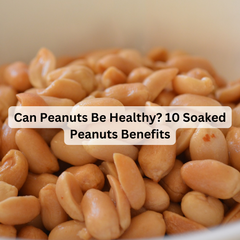Explaining 6 reasons why should you eat dry apricots in pregnancy and how to add dried apricots in your diet during pregnancy.
Pregnancy is a beautiful phase; however, it comes with lots of restrictions on what you eat. There are many superfoods that are recommended during pregnancy, and one of them is Apricots. Dried apricots are high in vitamins, iron, potassium, calcium, and phosphorus, which offer a wide range of health benefits to both mother and unborn baby.
Continue reading to learn about the 6 benefits of apricots in pregnancy. Don't forget to bookmark this article.
6 Health Benefits of Apricots in Pregnancy
-
Boost Immunity
Eating dry apricots in pregnancy is highly beneficial, as they are a great source of beta carotene, which the body transforms into vitamin A. Consuming apricots during pregnancy helps support the growth of the baby's vision and immunity. -
Manage Blood Pressure
High blood pressure during pregnancy is harmful for both the baby and the mother. Additionally, high BP poses many risks during and after delivery.
To prevent high blood pressure in your pregnancy phase, it is advisable to add apricots to your pregnancy-friendly diet. Being a rich source of potassium, apricots help normalise blood pressure. Additionally, apricots lower the risk of kidney stones.
-
Relief from Constipation
In your pregnancy, the chances of having constipation are very high. With three bowel movements in a week, pregnancy constipation is very common.
To get relief from constipation, add apricots to your pregnancy friendly diet. As apricots are a great source of fibre, they help in getting relief from constipation. Additionally, they help improve digestive health.
-
Fight Anemia
During the first trimester of your pregnancy, you must include dried apricots in your pregnancy-friendly diet. A rich of iron, dried apricots improves the blood health.
During pregnancy, the blood volume in women increases by 50%, so more iron is needed during the pregnancy phase. Therefore, you must include apricots in your diet.
-
Provide Energy
Do you know that during your pregnancy you need an extra 300 calories for the good growth and development of a baby? A cup of dried apricots is sufficient to meet your energy requirements in a healthy way. -
Good For Baby Development
Apricots are good in pregnancy as they are packed with vital nutrients that are good for the growth and development of the fetus. Apricots, which are a great source of folic acid, aid in preventing congenital disorders in newborns.
Calcium content is high in dried apricots. Having them when pregnant promotes the development of the bones in the foetus.
Apricots in Pregnancy - Points to Remember
Apricots are a healthy dry fruit to consume during pregnancy, but before including them in your diet, keep the following in mind:
- To obtain the most benefit, it is advised that you consume an apricot with your breakfast, mid-morning snack, or evening snack.
- Dried or matured apricots are preferable for consumption. During pregnancy, eating unripe apricots may result in extreme discomfort and stomach issues.
- It is advised to consume apricots in moderation (2–3 pieces per day), as an excessive amount may be hazardous to the unborn child.
- Before including apricots in your diet, check with your doctor to see whether you have a sulphur allergy.
- The seeds of an apricot must not be eaten during pregnancy because they contain cyanide, which can be harmful to the mother and the baby.
Conclusion
The bottom line is that apricots have significant medicinal, health, and nutritional benefits. They are a rich source of Vitamin A, which is vital for your baby's visual development. Additionally, they also have fibre and antioxidants, both of which are advantageous during pregnancy. To ensure the best possible health for both you and your unborn child, eat apricots frequently throughout your pregnancy, but in moderation.
If you have any questions or concerns about eating apricots during pregnancy, it is always a good idea to speak with your doctor.
 Deal of the week : Trial Snack Box - 18 Wholesome Delights Just at ₹ 899.00
Deal of the week : Trial Snack Box - 18 Wholesome Delights Just at ₹ 899.00






















